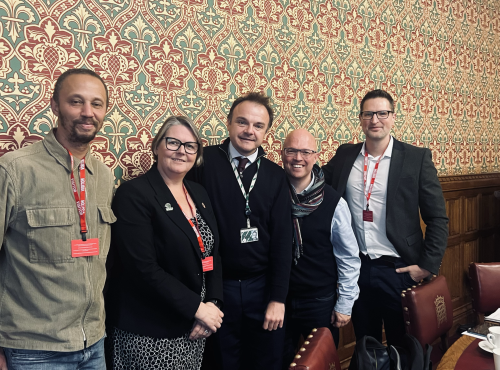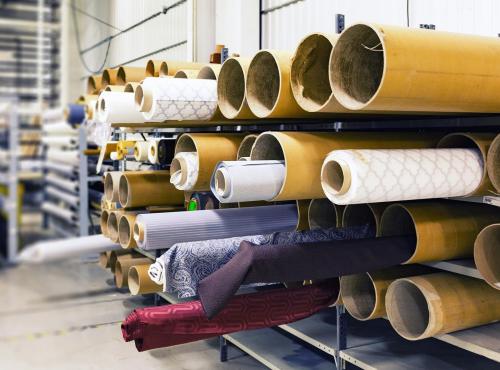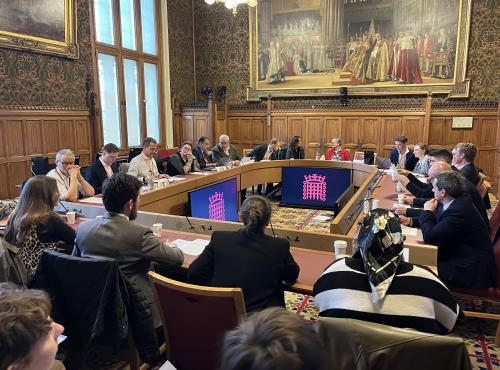Ready for a new challenge – how supermarkets are pledging to go green
For every £1 of household expenditure in the UK, 49p is spent in supermarkets. Of this, 33p is spent in just the four largest supermarket groups (Tesco, Asda, Sainsbury’s and Morrisons). UK supermarkets have huge influence in dictating what the UK population consumes, and the way that common household goods are made, packaged, and transported. Decisions made by supermarkets have huge sustainability implications, and can really make a difference in combatting the current climate crisis and working towards a net-zero future. In addition, considering that 3/4 of British grocery shoppers switch, avoid or boycott brands based on environment policies, supermarkets have a commercial, as well as ethical, reason to go green. In this article, Sarah Selley explores the way in which UK supermarkets are prioritising sustainability and how seriously we should take their pledges.
The past year has seen a wave of new promises made by ‘the big four’ supermarket chains, with each making significant pledges that will aim to contribute to tackling climate change. Just this week, Sainsbury’s CEO Mike Coupe announced an investment of £1bn over the next 20 years that will make the supermarket giant net-zero by 2040, ten years ahead of the UK government’s deadline. This will be achieved through tackling waste and encouraging sustainable practice in seven core areas, namely carbon emissions, water, plastic, recycling, food waste, diet and biodiversity. Practical changes include removing plastic film on fruit and vegetables, switching all store lighting to LED and expanding their ranges of meat alternatives, to name a few. Sainsbury’s has vowed to work with the Carbon Trust to assess emissions and set science-based targets for reduction, publicly reporting on their progress every six months, and has made a number of bold promises, such as halving plastic packaging by 2025 and food waste by 2030.
However, as the pledge does not extend to the supermarket's supply network, which accounts for most of its emissions, the scale of the commitment is not as impressive as first thought and may end up making a much smaller impact than necessary.
In addition to Sainsbury’s efforts, last week, Tesco announced that it will stop wrapping multipacks of tins in plastic, cutting 350 tonnes of it each year. Customers will still be able to purchase multiple tins for a reduced price, however they will be loose. This is a significant development as more than 40% of the supermarket’s customers include multipacks in their shop. In 2019, Tesco removed all hard-to-recycle materials from its own-brand products and also informed 1,500 of its suppliers that packaging will be a key factor in deciding which products to stock in its 3961 stores nationwide.
Not to be left out of the conversation, Asda has recently launched an initiative to capture ocean plastic, so it can be brought ashore and safely disposed of. This scheme will give durable bags to over 500 vessels that supply the supermarket, so that crews can collect polluting plastic waste while they fish. In addition, Asda has plans to trial a “sustainability store” in Leeds, where customers can fill their own containers with goods such as tea, pasta and cereal, as well as purchase loose, unwrapped fresh produce. Asda has also made several other sustainability commitments, including sourcing a third of its plastic packaging from recycled sources by the end of 2020, making all its packaging 100% recyclable by 2025 and reducing plastic altogether by 15% by February 2021.
In July 2019, Morrisons was named the UK’s most environmentally responsible retailer. It was the first of the big four to introduce a number of green initiatives such as the complete removal of black plastic from all their own-brand food and drink packaging, the introduction of reusable grocery paper bags, and loose fruit and veg sections. It has also pledged to make all of its packaging recyclable by 2025.
While UK supermarkets have recently proven themselves to be more mindful of their corporate responsibility when it comes to climate change and the role they play in the journey to Net-Zero, do these changes go far enough? Are supermarkets playing a large enough role and taking enough responsibility on a global level? Policy Connect and the All-Party Parliamentary Sustainable Resource Group are heavily involved in this area, and will be exploring issues around food waste, plastic packaging and the circular economy over the coming year. To read more about our evidence-based recommendations on the exporting of plastic waste, read our recent ‘Plastic Packaging Plan’.



